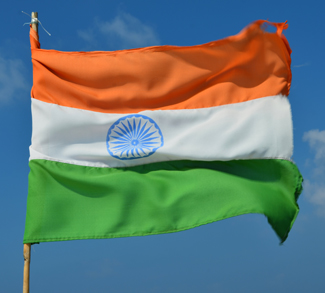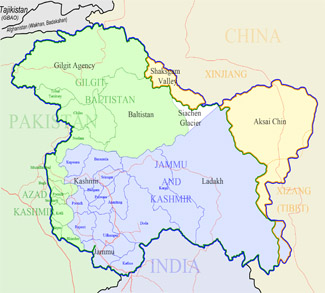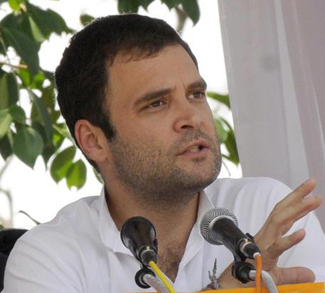The apprehension was that the majority mandate from Parliamentary elections would turn the head of Bharatiya Janata Party (BJP). Unfortunately, that happened. The glamor of victory seems to have overshadowed the need for astute state management.
The more powerful sections within the BJP leadership drew inspiration from the Rashtriya Swyam Sevak Sangh (RSS) think tank. Seniors and veterans of the party knew the risks involved in looking for brainwaves from that source.
After assuming power, BJP “Young Turks” (of course not actually young in age), naively sidelined party stalwarts who had always expressed reservations towards the party outright towing the Nagpur line. Even some figures with the ability to make individual input in juxtaposition with the party line were ostracized, certainly for the wrong reasons.
The wisdom of keeping stalwarts like Advani, Joshi, and Yashwant out of the fold was imperfect. What was the logic in sidelining persons like Subramanian Swamy, Shatrugan Sinha, and Arun Shouri. The party “Young Turks” had to understand that they needed a mechanism of checks and balances within the party. Moreover, in a mission of service to the nation, egos need bulldozing.
The ruling ‘clique’ opened two fronts simultaneously, a dormant one and an active one. The dormant front comprised of dissenters within the party and aggrieved elements outside the party. The active front comprised of political opponents, pseudo-secularists, pseudo-nationalists, and those having a personal vendetta against Modi.
No prudent political leader in the situation in which the nascent victorious BJP found itself would have opened two fronts against itself at the same time.
The revival of Hinduism, the faith professed by a majority of Indians, is not a bad idea, particularly when its contribution to Indian civilization was deliberately underplayed in the past. However, the revivalist attempt is flawed, and devoid of pragmatism dictated by the compulsions of contemporary Indian history.
BJP “Young Turks” should have wriggled out of the RSS stereotype, as did its seniors; they needed to charter their own path. They will not agree, but the truth is that the schoolchild-like submission of the Union Council of Ministers to the RSS think-tank in an indirect show of strength in New Delhi was more brazen than the UPA Cabinet submitting slavishly to the party high command when in power. When can we Indians overcome the hangover of our centuries old mentality of slaves?
Is RSS ideology relevant to the country in this century? Will Indian youth comprising 60 percent of total population and born and brought up in the cyber age feel comfortable with outdated ideologies and brainwaves? The BJP needs to open this discourse within its cadres.
The revival of Hinduism, the faith professed by a majority of Indians, is not a bad idea, particularly when its contribution to Indian civilization was deliberately underplayed in the past. However, the revivalist attempt is flawed, and devoid of pragmatism dictated by the compulsions of contemporary Indian history.
The revival of Hindu civilization should not mean denigrating other faiths and their contribution to composite Indian civilization. The gloomy fallout of personality cult obsession cannot be undone by launching a frontal attack on its manifestations. Prompting the youth to launch an attack on it is not the way; prompting them to reconstruct their thought processes is the way. Hindu civilization is rich and colorful enough. It can attract without infusing the element of repulsion. Positive Hindu revivalism should be non-violent, non-confrontational, subtle, and slow. Hinduism never preaches or encourages exclusiveness.
BJP needs to understand the far-reaching and historical significance of it winning a massive mandate in the Indian Parliament. The people of India wanted a change – a change in old and obsolete mindsets, a change in thought and approach. It rejected stereotype and aspired for healthier political dispensation.
Bihar election results should be a revelation. It has firmly established that the Indian voter strongly differentiates between national and regional interests. Recognition of identity of whatever hue it is has come to stay for a long time. Modi’s offer of 1.86-lakh crore economic packages meant almost nothing to Bihar voters. However, Nitish Kumar exploited the insinuating slogans of “jungle Raj” and “Nitish DNA” most rewardingly because he understood the sensitivity of Biharis towards regional identity.
Modi knows that dissenting forces within the country have ganged up to destabilize his government. Congress and Left combine has been ruling this country for more than half a century. It has raised strong and committed institutions with deep inroads. The Modi government is the first ever government that has openly taken on these entrenched institutions. Retaliation is natural. Therefore, we have a band of pseudo-intellectuals returning their Sahitya Akademi awards not for any real love for the well-being of the nation but only for satisfying their ego that they have joined a gang out to inflict a cut on Modi frame.
Again, Modi is the first Indian Prime Minister with huge mass base who has stood up against terrorism on the national and international plane. Evidently, he has posited himself in the line of fire. Overt attacks by pseudo-secularists at home and covert attacks by communalists abroad is the reward for his avowed anti-terrorist stance. Congress and the Left are galled less by the loss of power but more by impending erosion of its minority vote lever. This is why the two will form a close nexus to arouse communal passions among the minority, their favorite political strategy.
In such circumstances, the Modi government should have been more discreet and accommodative. Modi, with his small coterie of henchmen, cannot make any headway against the formidable odds unless pragmatic restructuring of the party is undertaken without loss of time.
By pragmatism, we mean the BJP as a practical ruling party and not an idealistic think tank. I do not agree that Modi government is intolerant but I emphasize that it is somewhat intolerant in party politics. The Bihar poll debacle should not be as much worrisome to Modi’s dispensation as to the dissenting voices within the party especially from its stalwarts. Modi’s decisive leadership must lie in his ability to bring about fusion of brainwaves and the realpolitik. If he fails in it, he will be walking in the footprints of his predecessor Manmohan Singh.
Modi has to realize that he stands at a crucial crossroads in contemporary Indian history. Indian youth take him as the harbinger of new thinking and a new approach. If he is able to set his house in order, he will find his opponents weakened and demoralized. He has to focus essentially on building new institutions and not on dismantling the old ones just because they stand diametrically opposite to his. The old ones will automatically be dismantled once new and healthy ones are coming up.
The opinions, beliefs, and viewpoints expressed by the authors are theirs alone and don’t reflect any official position of Geopoliticalmonitor.com.



